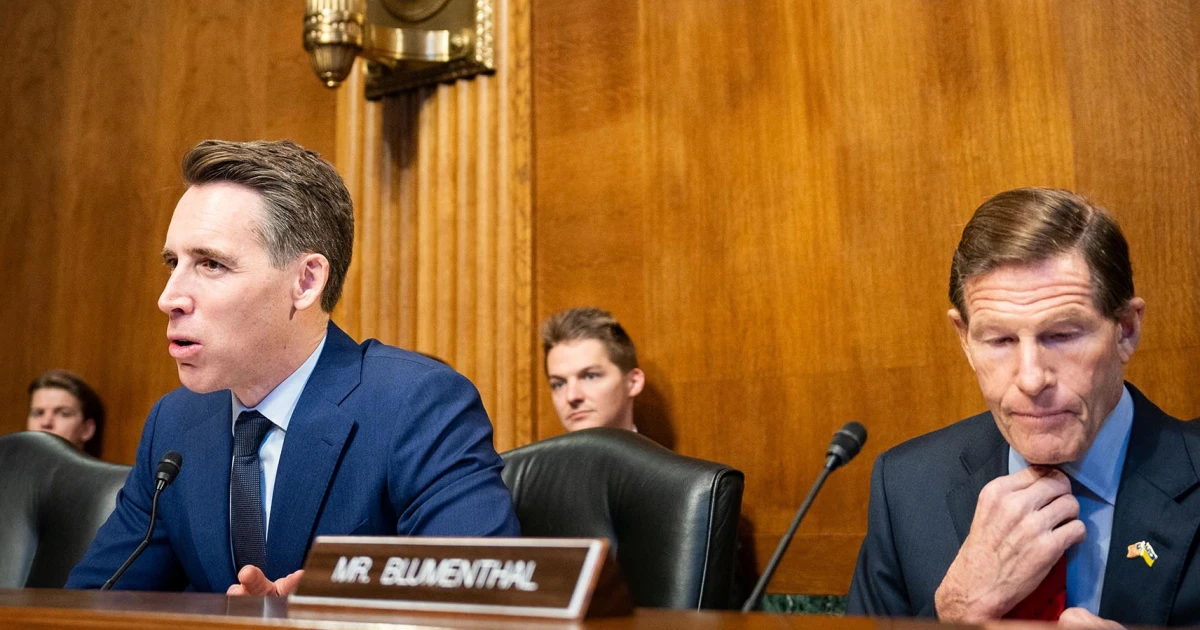Copyright researchsnipers

Personalized marketing has long been one of the most effective ways to reach customers. From product recommendations to tailored emails, the ability to deliver messages that resonate with individual preferences has transformed how brands communicate. But as personalization becomes more advanced-fueled by data and artificial intelligence-it also faces growing scrutiny. The digital world is entering an era defined not only by smarter algorithms but also by stricter data privacy expectations. The question is no longer whether marketers can personalize, but how they can do it responsibly. Balancing personalization with data privacy has become one of the defining challenges of modern marketing strategy. The End of Third-Party Tracking and the Rise of Trust-Based Data For years, third-party cookies were the backbone of digital personalization. They tracked users across websites, collected behavioral data, and enabled targeted advertising. Yet this system operated largely out of sight, leading to consumer fatigue and regulatory backlash. As browsers phase out third-party tracking, marketers must rethink how they gather and use data. The shift toward first- and zero-party data represents a fundamental change in philosophy. First-party data comes directly from a brand’s own interactions – its website, app, or CRM – while zero-party data is information customers willingly share, such as preferences or feedback. Unlike third-party data, these forms of information are built on explicit consent and transparent value exchange. This movement redefines personalization as a collaborative process between brand and user. Instead of covert tracking, businesses are now incentivized to create experiences where users want to share their information. Brands that treat privacy as part of their value proposition – rather than a compliance checkbox – will stand out. AI-Driven Personalization: Opportunity Meets Responsibility Artificial intelligence is making personalization faster, smarter, and more precise than ever before. Machine learning can predict customer behavior, segment audiences dynamically, and even personalize website layouts in real time. But with this power comes responsibility. AI thrives on data. The more information it consumes, the more accurate its predictions become. However, excessive data collection can easily cross into intrusive territory. When users feel their behavior is being monitored too closely, trust erodes quickly. The tension between personalization and privacy – often called the privacy-personalization paradox – is now front and center. Consumers enjoy relevant recommendations but dislike feeling surveilled. The key lies in transparency. Brands that explain how their personalization systems work and what benefits users gain from sharing data are far more likely to maintain trust. AI also presents a chance to enhance privacy, not just threaten it. Emerging technologies like federated learning allow algorithms to learn from user behavior without moving sensitive data to central servers. Similarly, anonymization and encryption tools can enable personalization while protecting identity. The challenge is integrating these privacy-enhancing technologies into marketing infrastructure, not treating them as afterthoughts. The Growing Weight of Regulation and Consumer Expectations Governments around the world have recognized that unregulated data collection poses both ethical and economic risks. Regulations like Europe’s General Data Protection Regulation (GDPR) and the California Consumer Privacy Act (CCPA) have forced companies to be more deliberate about what they collect and why. But compliance is only part of the equation. Even in regions without strict laws, consumer expectations are rapidly evolving. People want brands to respect their choices, explain how data is used, and give them meaningful control. Transparency isn’t just good ethics – it’s good marketing. Brands that communicate clearly about their data practices build credibility. Providing easy opt-in mechanisms, clear privacy dashboards, and intuitive preference centers sends a signal of respect. In a marketplace where consumers are bombarded by content, trust is a differentiator that directly impacts conversion and loyalty. The reputational risk of mishandling data has never been higher. A single privacy misstep can undo years of brand building. On the other hand, companies that go beyond compliance – actively showing customers how they safeguard data – can turn privacy into a competitive advantage. Building Ethical Personalization Frameworks As personalization becomes more complex, marketers need guiding principles that ensure their strategies align with privacy, ethics, and user empowerment. Below are several pillars that define ethical personalization in a post-cookie, AI-driven world. 1. Transparent Data Collection and Consent Collect only what’s needed, explain why, and give users agency. The exchange should always feel fair – users provide information in return for a better experience, not because they’re being tricked into it. Forms, cookies, and email preferences should be written in plain language rather than legal jargon. 2. First and Zero-Party Data Strategies Encourage customers to share preferences voluntarily. Tools like preference quizzes, loyalty programs, or interactive content can make data sharing engaging. This approach builds a deeper sense of connection and provides more accurate information than buying external data. 3. Privacy by Design Rather than treating privacy as a constraint, integrate it into the design of digital systems. Data minimization, encryption, and regular audits should be standard practice. Privacy-by-design turns compliance into culture-protecting users proactively, not reactively. 4. Human-Centered AI Algorithms can deliver remarkable personalization, but they must be guided by human ethics. Teams should regularly review how AI models make recommendations, check for bias, and ensure automated decisions align with company values. Personalization should feel helpful, not manipulative. 5. Cross-Team Collaboration Marketing, IT, and legal teams can no longer operate in silos. Data privacy requires interdisciplinary cooperation. Developers handle encryption, marketers craft consent flows, and compliance officers maintain oversight. Together, they create systems that are both innovative and accountable. 6. Ethical Marketing Partnerships For service-based businesses-such as healthcare providers, therapists, or consultants – privacy expectations are even higher. In these sectors, the marketing strategy must reflect confidentiality and empathy. Partnering with digital experts who prioritize ethical design can make all the difference. This is where agencies like Mendel Sites help brands build trust-driven websites and campaigns. By designing digital experiences that balance personalization with privacy, businesses can reach their audiences without compromising on ethics. Thoughtful design ensures that every marketing interaction respects consent while still delivering value. 7. Continuous Monitoring and Adaptation Privacy expectations and technologies evolve quickly. What’s compliant today may not be tomorrow. Marketers must monitor not just analytics but also sentiment – how customers feel about their digital interactions. Regular reviews and user feedback loops ensure strategies remain relevant and respectful. The Business Case for Ethical Personalization Balancing privacy and personalization isn’t just about avoiding penalties – it’s about building stronger relationships. Consumers are more likely to engage with brands they trust. When customers understand that a company values their data security, they respond with loyalty, advocacy, and a willingness to share more accurate information. Ethical personalization also yields better data quality. When users share information voluntarily, it tends to be more precise and up to date. This leads to better insights, improved targeting, and higher ROI. Over time, trust-based data creates a virtuous cycle – responsible collection leads to accurate personalization, which deepens engagement, which in turn encourages more data sharing. Moreover, privacy-forward brands often see improved internal efficiency. By limiting unnecessary data collection, teams spend less time managing redundant systems and more time focusing on meaningful insights. Fewer data silos mean clearer governance and reduced cybersecurity risk. From a branding perspective, ethics and innovation are increasingly linked. Companies that treat privacy as a feature rather than a burden signal that they understand modern consumers. The same mindset that values transparency also fuels creativity – it challenges marketers to design experiences that are simultaneously personalized and respectful. Looking Ahead: The Next Chapter of Privacy-First Marketing The next phase of personalized marketing will not be about how much data a brand can gather but about how intelligently and ethically that data is used. Several trends are already shaping the future: On-device and edge computing will allow personalization without sending raw user data to central servers, preserving privacy.Zero-party data experiences will become mainstream, with consumers expecting clear “value exchanges” for the information they share.Unified preference management will empower users to control personalization across multiple platforms and touchpoints.AI governance will evolve to include explainability and transparency, ensuring automated personalization aligns with ethical standards.Regulations will converge globally, establishing consistent expectations for data collection and consumer rights. Ultimately, the brands that succeed will be those that view data as a privilege, not a possession. Every piece of information a user shares is a signal of trust. Preserving that trust will define the winners in the privacy-first marketing era. Conclusion: From Compliance to Confidence Data privacy and personalized marketing no longer exist on opposite ends of the spectrum. When handled thoughtfully, they reinforce one another. Transparency invites participation, and consent fosters engagement. The future of marketing belongs to brands that design for trust – those that make privacy visible, value user choice, and treat every interaction as a contract of respect. As technology evolves, ethical personalization will not be a limitation but a new standard of excellence. Companies that lead with integrity will not only avoid risk – they’ll redefine what meaningful marketing looks like in the digital age.



